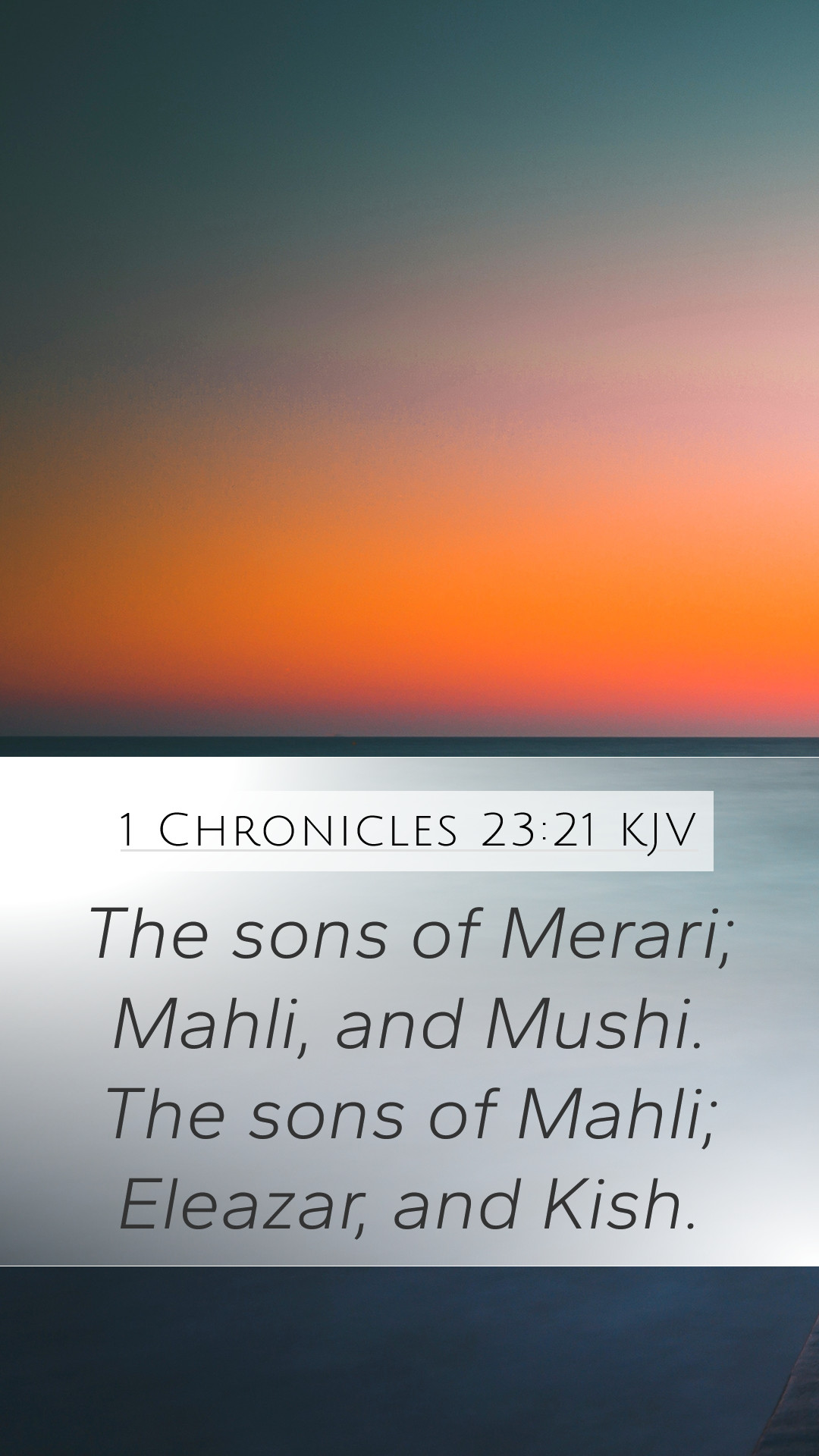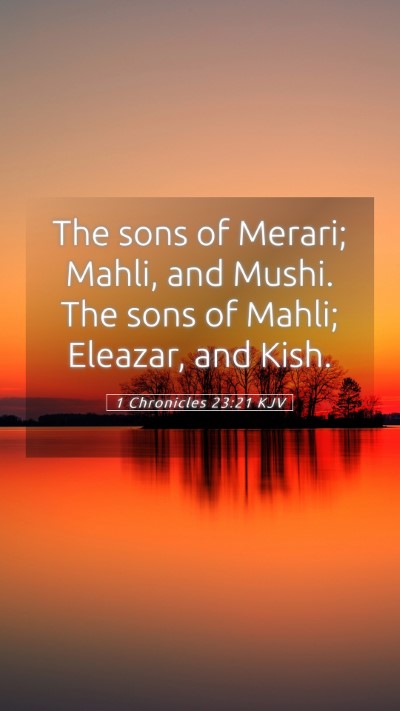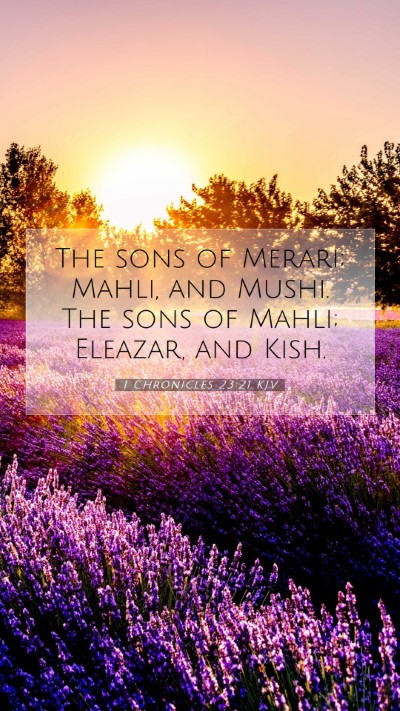Understanding 1 Chronicles 23:21
Bible Verse: 1 Chronicles 23:21 - "The sons of Merari; Mahli and Mushi. The sons of Mahli; Eleazar and Kish."
Overview of the Verse
This verse is part of a larger section in 1 Chronicles that details the organization of the Levites and their duties in the worship of God. Here, we find a specific lineage being highlighted, focusing on the sons of Merari, who belonged to the tribe of Levi. The mention of these families underlines the structured and genealogical emphasis present in Chronicles, which serves both historical and religious purposes.
Bible Verse Meanings
The significance of this passage can be unveiled through various commentaries:
- Matthew Henry's Commentary: Henry emphasizes the importance of genealogies, interpreting them as a way to preserve the sacred heritage of Israel. He notes that the organized division of the descendants of Merari reflects the careful planning of worship and the roles assigned to each family.
- Albert Barnes’ Notes: Barnes discusses the Levites’ role in the temple service, concluding that the sons of Merari, including Mahli and Mushi, were responsible for important duties. He highlights that such genealogical records served to instill a sense of identity among the Levites, reinforcing their purpose and responsibilities in service to God.
- Adam Clarke’s Commentary: Clarke provides a historical context, explaining the significance of the Levites' lineage during the post-exilic period. He stresses the need for order in worship practices, noting that this genealogical record serves as a validation of authority and priestly lineage which was essential for worship in the temple.
Key Themes and Insights
The following themes arise from 1 Chronicles 23:21 and its context:
- Heritage and Lineage: The emphasis on genealogy demonstrates the importance of family lines in Israel’s worship and identity. Understanding one's heritage was crucial for fulfilling religious obligations.
- Organization of Worship: The specific assignments within the Levite families illustrate the structured approach to worship in ancient Israel, which reflects God's desire for order and dignity in service.
- Collective Responsibility: Each family had specific roles, highlighting the collective responsibility of the Levites and their commitment to serving God’s purposes.
Related Cross References
- Numbers 3:33-37: Details the duties assigned to the Merarites.
- 1 Chronicles 6:1-15: A broader genealogical record of the Levites, connecting back to Aaron.
- Exodus 6:19: Mention of the Levite clans which include Merari as part of the priestly lineage.
Application and Reflection
In applying this verse, one may consider the importance of understanding one’s own spiritual heritage within the Christian faith. Reflection on where one comes from can provide perspective on how to serve effectively in community and worship. The verse invites believers to appreciate the structure and design God established for worship, urging them to invest in collective spiritual responsibilities.
Conclusion
The examination of 1 Chronicles 23:21 through various public domain commentaries provides a deeper understanding of its significance within the broader narrative of Scripture. This verse is not merely a record of names but a crucial part of understanding how God organized His people for worship, reflecting themes of heritage, responsibility, and divine order.


